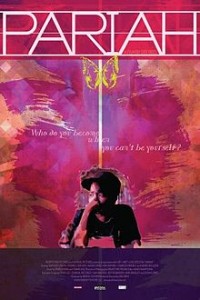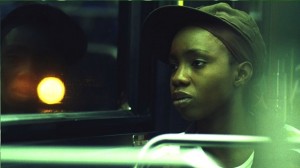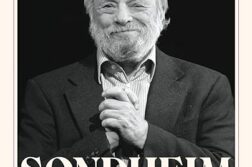 Pariah
Pariah
Written and directed by Dee Rees
Focus Features
THE FILM PARIAH is all about Alike (pronounced ah-lee-kay), a seventeen-year-old black girl who happens to be lesbian. Alike is smart yet naïve, confident, and hesitant about revealing her true self—not that she herself ever questions who she is. Alike is many things, including a teenager, as we see early on when she changes back into clothes of which her mother will approve before arriving home. Here a change of clothing represents, as it so often does, the attempt to alter or, in this case, conceal one’s true identity.
However, if Alike’s sexual orientation is a secret, it’s also the elephant in the room. Everyone knows, including both of her parents; it’s just that no one wants to ask directly—perhaps for fear of having their suspicions confirmed. Her mother’s attempts to have Alike dress in more feminine clothes are futile, and her father’s rose-colored glasses prevent him from seeing her as anything other than “daddy’s little girl.”
Audaciously and candidly directed by Dee Rees, Pariah illustrates the complexities of Alike’s coming out trajectory by weaving universal themes into the film’s narrative, notably the motif of coming of age. What helps Alike in this process is her habit of writing poetry which, however clichéd at times, she uses as a source of solace. It is in these writings that she declares, “I am not running, I am choosing,” which becomes her mantra.
While race doesn’t overwhelm Pariah, it can’t be overlooked either. The fact that this film’s protagonist is a black lesbian teenager is nothing short of a cinematic landmark. Moreover, what Rees has brought to the screen in Pariah is a stunning visual document about a segment of society that’s often filled with misconceptions and half-truths when it comes to gays and lesbians. Pariah does not set out to dispel the reputation of blacks as more homophobic than the general population, but it does put an individual face on the issue rather than a monolithic homophobic black face.
The performances in Pariah are stellar. Adepero Oduye stars as Alike, and she makes about as poignant an onscreen debut as they come. When Alike gets an unexpected kiss, the actress conveys the sentiments of vulnerability and vigor reminiscent of Celie’s kiss from Shug in The Color Purple. Even the usually comedic Kim Wayans brings an impressive intensity to a serious performance as Alike’s sanctimonious and overbearing mother Audrey.
about as poignant an onscreen debut as they come. When Alike gets an unexpected kiss, the actress conveys the sentiments of vulnerability and vigor reminiscent of Celie’s kiss from Shug in The Color Purple. Even the usually comedic Kim Wayans brings an impressive intensity to a serious performance as Alike’s sanctimonious and overbearing mother Audrey.
Pariah is a complex story with many layers beneath the surface categories of being a “black” or “lesbian” film. It’s a film about coming of age, coming out, and coming to terms with events that could not have been foreseen. It’s also a narrative that mirrors many true life experiences that unfold for the first time onscreen. Director Dee Rees is off to a superb start as a filmmaker in her feature film directorial debut, and hopefully she’ll continue to make films that generate as much (needed) discourse as Pariah has.
________________________________________________________
Lerone Landis is a freelance writer on gay culture and politics who has contributed to Dallas Voice, The Texas Triangle, Curve, and others.




